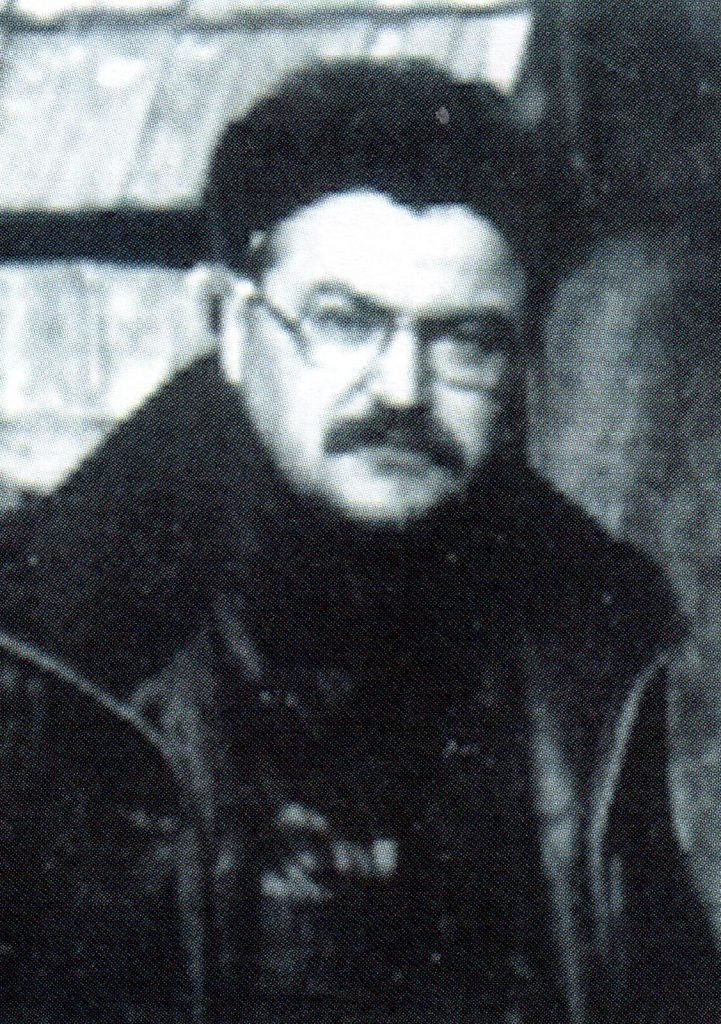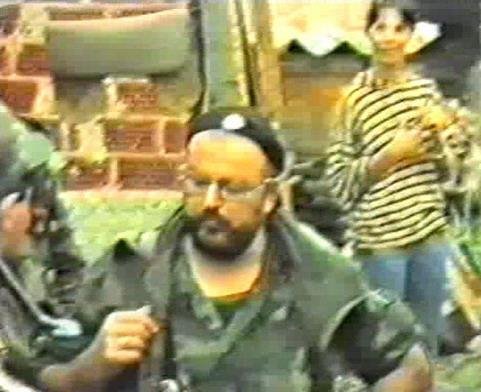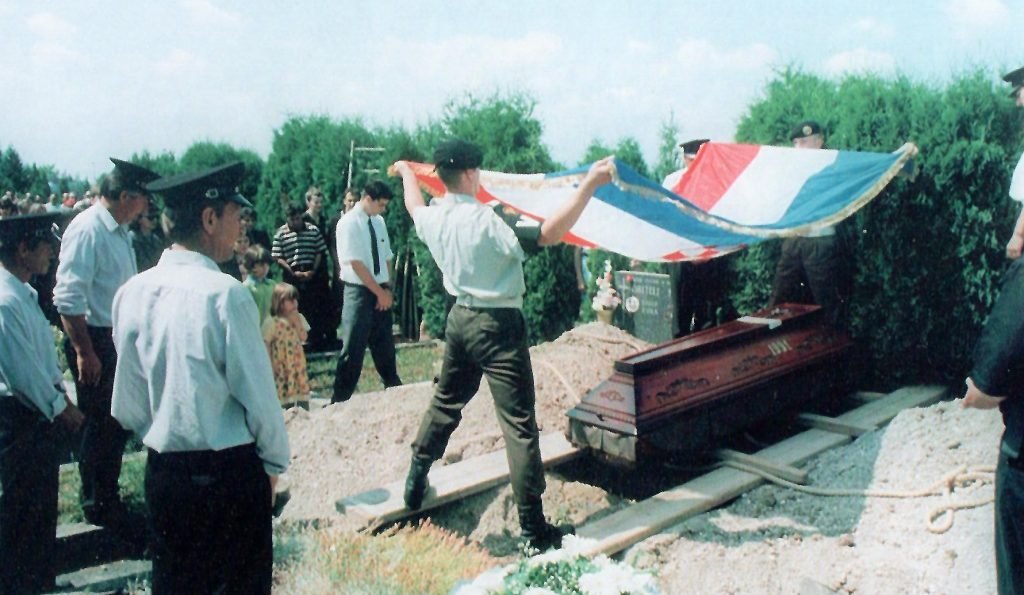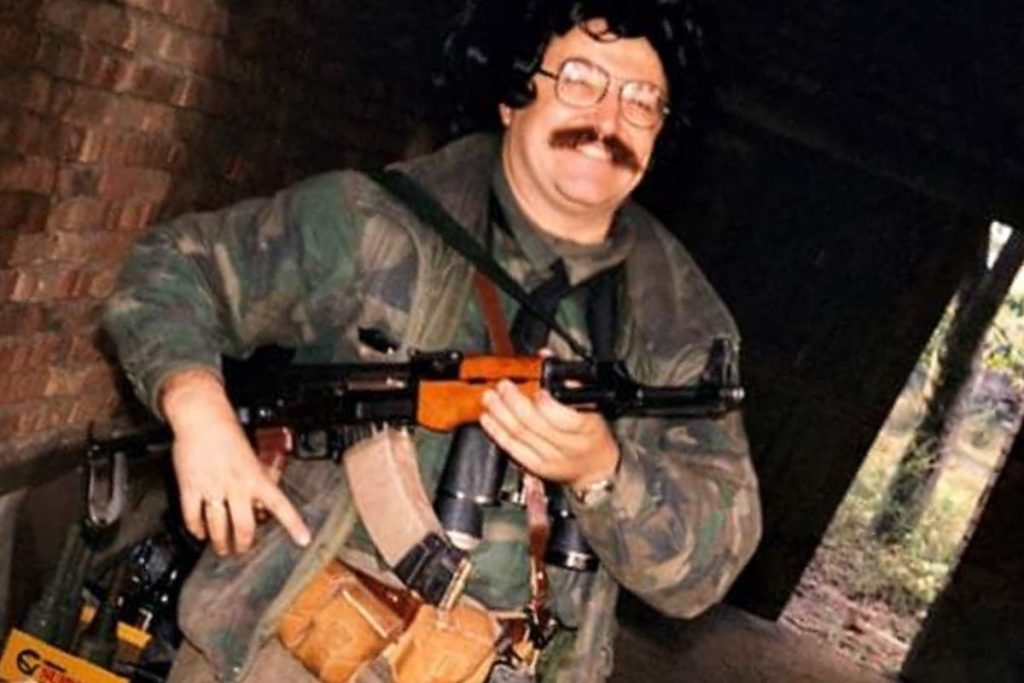On 28 October 1991, Mladen “Grof” (Eng: “The Count”) Amstrong, one of the heroes of Vukovar and the Homeland War was killed in action during the Battle of Vukovar.

Amstrong was born on 29 September 1954 in Donji Mamići near Grude, where he grew up on the Herzegovinian karst with five sisters and a brother. He enrolled at the Faculty of Agriculture in Priština but upon completion of his military service, Amstrong ended his studies and moved to Zagreb where he found employment, started a family and changed his surname from Leko to Amstrong. He was an avid reader of books and particularly enjoyed poetry. In the early 1990s, Amstrong became involved in democratic changes in the town of Velika Gorica where he lived and became president of the local branch of the Croatian Party of Rights.

After joining the Croatian Defense Forces (CDF), Amstrong completed training in the Žumberak area, gained his first combat experience in the Kordun region and then went to participate in the defense of Vukovar with his fellow CDF members in September 1991. Damir Markuš-Kutina recalled the loss of his comrade-in-arms in his book “58 – HOS (CDF) in the defense of Vukovar and Bogdanovci”:
Mladen ‘Grof’ Amstrong, 37 years old, was our CDF member from Velika Gorica. Unfortunately, the same point where I was wounded was fatal for ‘Grof’. His death particularly affected me, as it did all the other soldiers from the CDF and Vukovar who knew him because he was so special. He shouted insults at the enemy, cursed their Chetnik mothers over the Motorola and especially attacked the Montenegrins who aided the Serbs in the siege of Vukovar. Unfortunately, an enemy shell hit the wall next to him during battle and killed him instantly. He always wore a helmet and we used to tease him that he didn’t need it, that he had better throw it away as he looked like a Chetnik with it on his head and that we could shoot him during battle thinking he was the enemy. The wreckage that killed him hit him just below the helmet in the head area above the neck. He was always in a good mood and everyone was glad to see him. I once went with him to the silo at Priljevo along the Danube which was later occupied by the Chetniks, cutting off the only link between us in Vukovar and the defenders in Borovo Naselje. He had a relative there and I went with him so that he wouldn’t go alone. ‘Grof’ told me about his children, especially his daughter who had a black belt in tae-kwon-do and was Yugoslav champion. He was terribly proud of his children. At that time, I did not think about how big a sacrifice he or his family would make when he decided to defend the homeland in Vukovar. I was not married nor did I have children and it was only when I later married and had a son that I realized the magnitude of his decision and sacrifice. If someone were to attack us again as they did in 1991, and should we have to defend the Homeland in Vukovar again, I really don’t know if I would go… I really don’t know. I probably would go but I can only imagine how difficult a decision it would be. To leave your loved ones and go into the complete uncertainty of war knowing the risk involved… all honour to those people, all honour!
After the war, Mladen Amstrong was buried in the cemetery in Velika Gorica. He left behind his wife Nevenka, 12-year-old daughter Nataša and son Kristian who celebrated his 8th birthday three days before his father’s death.

Magistar sam povijesti. Radno iskustvo stjecao sam u Hrvatskom povijesnom muzeju i na Hrvatskoj radioteleviziji u emisiji TV Kalendar. Autor sam nekoliko knjiga i filmova na temu Domovinskog rata. Osnovao sam i uređujem Facebook stranicu Dogodilo se na današnji dan – Domovinski rat i portal Domovinskirat.hr. Također uređujem i vodim emisiju Domoljubne minute koja se svakog dana emitira na Hrvatskom katoličkom radiju te emisiju Sve za Hrvatsku i Novi valovi dobrote. Vlasnik sam obrta CroHis kojim promičem vrijednosti Domovinskog rata.

